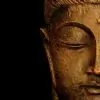The government of Madhya Pradesh recently took a decision that the essence of the Gita would be taught in all schools in the state as a compulsory subject. It would, therefore, be a part of the school curriculum. The Christian community has taken exception to this and through the Bishops' Conference it filed a writ petition in the Madhya Pradesh High Court. The high court has ruled that the Gita is not a part of the Hindu scriptures and is not a religious book or dharma granth. Therefore, its inclusion in the curriculum does not detract from the secular character of the state. In this it has upheld the contention of the Madhya Pradesh government that the introduction of the Gita was not tantamount to introducing religious education and that the principles laid down in the Gita are totally secular in nature and help in building character.
The Hindu religion or, rather the Sanatan Dharma, does not have one single set of scriptures such as the Bible for Christians and the Quran for Muslims. Not being a revealed religion Hinduism, through practice, precept and popular acceptance gives the status of scriptures and of holy books to the Vedas, the Upanishads, the Puranas, the Gita and to any other book that is accepted as holy because it contains spiritual wisdom. In fact in Hinduism it is spirituality rather than religion which is paramount and, therefore, what constitutes scriptures is a matter of interpretation.
How does a Hindu view the Gita? The Gita or Shrimad Bhagawat Gita, is contained in the Mahabharat. The Mahabharat is an epic, perhaps the greatest epic in the Indian cultural milieu. Part of this epic is the Gita, which is a battlefield exhortation by Krishna to Arjun at a time when Arjun was reluctant to fight against his Kaurava cousins. No one looks on the Mahabharat as a scripture, but apart from being an epic of the war between Pandavas and the Kauravas the Mahabharat is also a magnificent treatise on statecraft. The Sabha Parva, Anushasan Parva and Shanti Parva of Mahabharat contain the dialogue between sage Narad and King Yudhishtir and detailed pronouncements on dharma. For example, Narad, in the Anushasan Parva, defines the duty of the ruler in the following words: "The interest of all his subjects alone is his interest, their well-being is his well-being, that which is pleasant to them is pleasant to him and in their good lies his own good. Everything he has is for their sake: for his own sake he has nothing". Narad, in the Shanti Parva, advises: "The power of governance is to be exercised in accordance with dharma and not arbitrarily". In other words, the ruler is supposed to be austere and not personally acquisitive. He is required to rule according to law, that is, dharma and not according to his own whims and fancies. This establishes the supremacy of the rule of law. These are all principles that apply to any form of government. The word dharma used here has no religious connotation.
The principles laid down in the relevant portions of the Mahabharat are totally secular and do not form part of a particular religion or faith. In this the Mahabharat approximates to Kautilya's Arthashastra and his advice to Chandra Gupta Maurya in the matter of statecraft. Kautilya is also known as Chanakya. The Gita, however, goes beyond these Parvas of the Mahabharat. Krishna's advice on what constitutes duty applies to all people, regardless of the faith they profess. His statement that one should do one's duty regardless of consequences or the fruits of one's actions is wise and correct because duty is performed for its own sake and not because it will bring material reward. The words of the coat-of-arms of the Indian Administrative Service, which read Yogaha Karmasu Kaushalam' are from the Gita but they have no religious connotation and are an appropriate motto for a service that is supposed to lead, serve and work with competence and ability. To this extent there is nothing religious in the Gita.
However, the Gita is also the tract in which Krishna reveals his divinity, or Viraat Swaroop' to Arjun to convince him that he is the true avatar of Vishnu. It is in the Gita that Krishna states that he has always manifested himself as Vishnu incarnate amongst mankind when the situation so demands and that in every age he will appear as an avatar, or saviour, to save mankind from its own follies. To this extent the Gita is a scripture and every Hindu believes so.
Recently a court in Russia was petitioned for a ban on the Gita on the ground that it is not a religious book but is designed to promote extremism. Hindu organisations were outraged and pressurised government to fight the case in Russia. If it is not a holy book then why did Hindu organisations take up the matter of the Gita? If Gita is not a holy book then if someone burns or otherwise insults the Gita, would the perpetrator be liable for prosecution under Section 153A of Indian Penal Code? I only know that if a Muslim desecrates the Gita the Hindu reaction would be as violent as that of Muslims if the Quran were to be desecrated. People do not react this way to normal literature. As it is, in every religious congregation or event there is Gita Path as if it is a religious tract. To a Hindu the Gita is part of Hindu scriptures.
That being so, making lessons from the Gita mandatory in schools is contrary to the statement in the Preamble to the Constitution of India that India is a secular republic. Article 25 gives freedom of conscience and free profession, practice and propagation of religion. Equally, a person has a right not to listen to someone else's propagation of religion and because he has freedom of conscience he may reject an attempt to teach him what a religious book states. Article 51A in sub-clause (e) makes it the duty of every citizen to promote harmony and a spirit of common brotherhood transcending religious, linguistic and regional or sectional diversities. Making a study of a particular scripture compulsory in schools runs contrary to the spirit of Article 51A. To that extent one must disagree with the decision of the honourable high court and continue to believe that the Gita is not only a dharma granth, but for all Hindus has pride of place as a book of faith.
(Views expressed in the column are the author's own)
M N Buch, a former civil servant, is chairman, National Centre for Human Settlements and Environment, Bhopal.






























